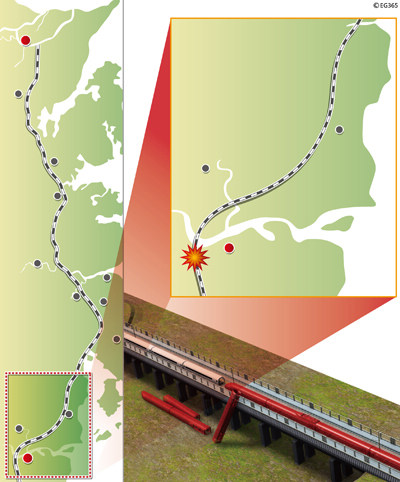|
 |
|
DEEP SYMPATHY: Premier Wen Jiabao visits family members of the deceased and injured passengers in Wenzhou, Zhejiang Province, on July 28 (HUANG JINGWEN) |
An official in charge of the Wenzhou blood bank said on July 23 many of the injured passengers had lost blood and needed transfusions. The blood bank was appealing for donations from cities nearby, as well as from local residents. Upon hearing this, thousands of Wenzhou residents flocked to blood banks to donate.
Health officials said they were confident blood stocks were adequate to cope with the demand following the rail disaster.
Late on July 24, Minister of Railways Sheng Guangzu and MOR spokesman Wang Yongping apologized to victims of the collision and their families.
Wang also revealed three railway officials had been fired as a result of the collision and these officials would be subject to an investigation.
The officials sacked were Long Jing, Director of the Shanghai Railways Bureau, Li Jia, Party chief of the bureau, and He Shengli, Deputy Director of the bureau.
The MOR has promised to pay the families of the deceased 500,000 yuan ($77,640) each in compensation.
Tracing causes
On July 28, the investigation group established by the State Council held a plenary meeting in Wenzhou. Luo Lin, head of the group and Minister of the State Administration of Work Safety, said a comprehensive investigation into the cause of the train crash had been launched.
In addition to discovering the causes behind the train crash, investigators will also suggest punishments for those held responsible for the tragedy. They have also been tasked with introducing new measures to prevent future accidents.
Luo said he expected the results of the probe to be made public in mid-September.
To ensure the Wenzhou disaster is not repeated the MOR has ordered a two-month safety check on railway operations. "The safety campaign will focus on implementing maintenance standards and reinforcing checks on power connections to prevent outages on high speed lines," said Minister Sheng.
Going beyond railways the State Council has decided to launch a nationwide campaign to improve the general standard of work safety in the country. The campaign will focus on areas such as transportation, coal mining, construction and the hazardous chemical industry.
"The campaign aims to detect and remove potential dangers through comprehensive and thorough inspections of railways, roads, bridges, coalmines and buildings that are currently under construction," said a statement released by the State Council on July 27.
Despite the Wenzhou accident, MOR spokesman Wang said China's high-speed rail technology was "advanced and up to international standards."
But his reassurance seems to have had little effect on the public's shattered confidence.
According to an online survey by news portal Ifeng.com, more than 54 percent of the 251,000 people polled said they would not take high-speed trains, at least in the short term. Only 15 percent said they believed the service was safe.
Industry experts also warned the accident might undermine China's plans to export high-speed rail technology.
China has made strides in recent years tapping the global high-speed rail market. It has signed agreements with more than 30 countries since 2003, including the United States, Russia, Brazil, Saudi Arabia, Turkey, Poland and India.
"China's railway's export business will be negatively affected as overseas clients may doubt our quality," said Yang Hao, a transportation professor at Beijing Jiaotong University.
 |
|
Red point on the right side of the railway is Wenzhou City (CFP) | | 